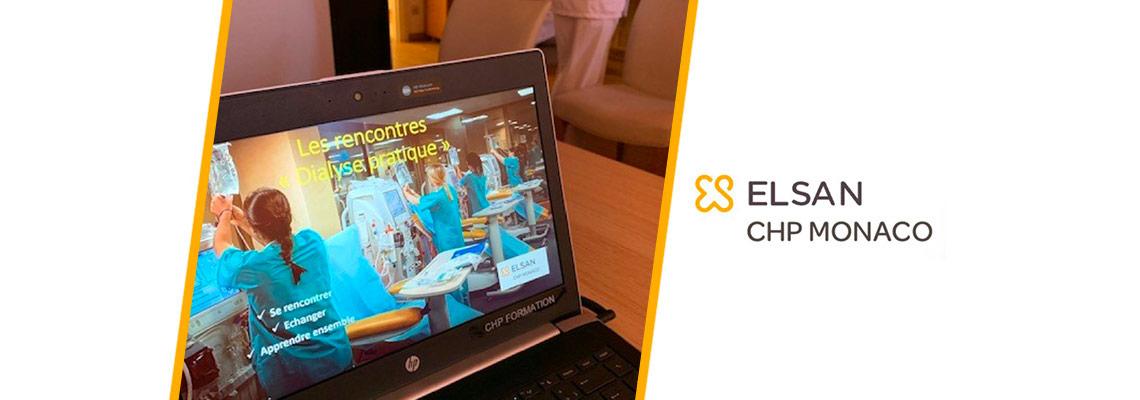Centres
“Practical dialysis” sessions at CHPM
By: Angeline Pena Prado, Director of Nursing Care, Quality Engineer for the Quality and Safety of Care (Monaco Private Dialysis Centre - CHPM)
As part of an effort to improve the patient experience and quality of care, the Monaco Private Dialysis Centre (CHPM) introduced “practical dialysis” sessions a year ago.
They are aimed at facilities such as care homes, healthcare institutions and care units who regularly deal with dialysis patients.
Overview
The CHPM noted certain shortcomings in the care provided to its dialysis patients by partner establishments, either due to a lack of knowledge about kidney disease or a limited understanding of dialysis (for example, arteriovenous fistula (AVF) dressings left on for longer than 48 hours, failure to monitor vascular accesses, clothing that is not appropriate for dialysis treatment or an unsuitable diet).
The CHPM clearly identified two main problems:
- A lack of understanding regarding the specific nature of dialysis
- A lack of communication between care teams and establishments
To mitigate these issues and improve the treatment of our dialysis patients, the CHPM has introduced “practical dialysis” sessions. It is offering the opportunity for healthcare facilities with whom we share patients to come to the Centre and meet the care teams, managers and doctors to:
- Improve their understanding of dialysis and end-stage chronic kidney failure;
- Improve communication between healthcare staff;
- Share experience;
- Highlight any potential challenges in care provision and/or coordination.
All healthcare staff are welcome to attend our presentations (hospital staff, carers and students). We work on the basis that the more information is shared, the greater the ultimate positive impact for the patient.
Content
Sessions last around an hour. The CHPM makes appointments in advance with healthcare managers at the units and facilities concerned: the welcome is always excellent and the teams are interested and keen to learn.
First, there is a presentation about the CHPM and its specific status as a “fully staffed centre”.
We also talk about our provision of renal medicine consultations and our rapid access to consultation time slots.
We then move on to discuss what dialysis is and how our centre works: session hours, arrival/welcome/how the session will progress for patients/departure.
We explain vascular accesses and offer “tips for treatment”.
We discuss the dietary needs of dialysis patients and fluid restrictions.
The session ends with a question and answer session, which is always very intense, since participants are interested and enthusiastic: often, many of them are “just discovering” dialysis.
The CHPM offers information leaflets on the specific treatment of dialysis patients (AVF and catheter access monitoring, diet, etc.).
Please note that the CHPM always provides refreshments.
Conclusion
- Improvement of patient experience and quality of care.
- Improvement of relationship and communication between healthcare staff and facilities, promoting quality work.
- Expansion of knowledge on the specific nature of chronic kidney failure and dialysis.
- Development of a professional network.
